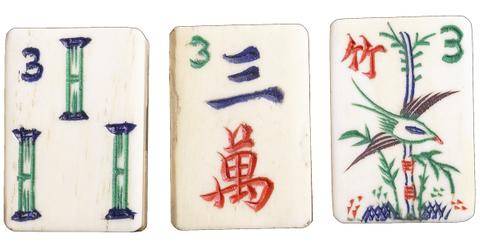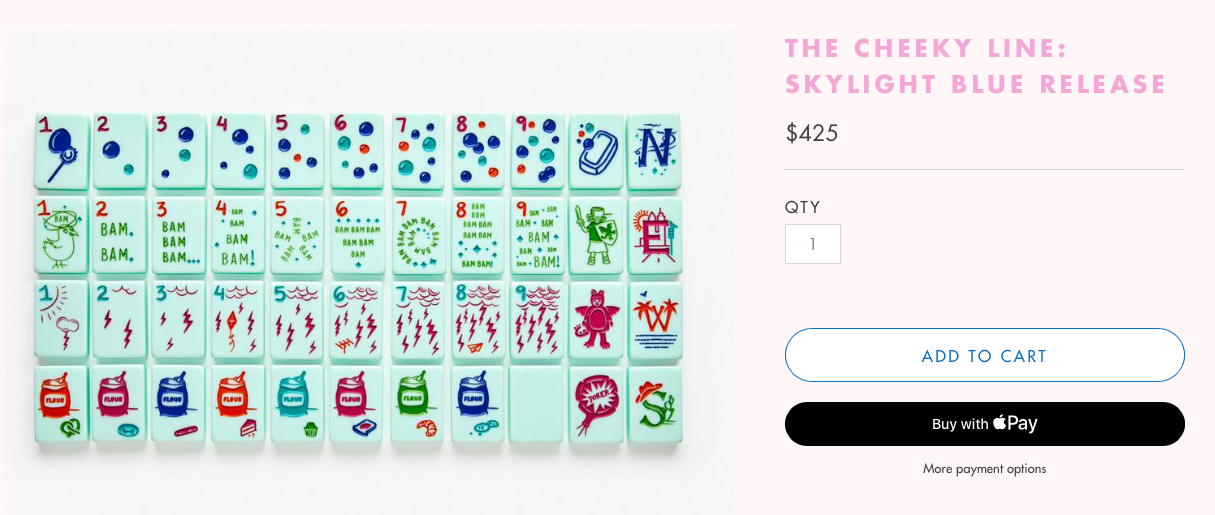Here's What the Mahjong Controversy Can Teach Us About Cultural Appropriation
Updated Jan. 12 2021, 3:28 p.m. ET

It’s early in the year, but we’re already tired. As an astute internet user put it, "We’ve experienced the trial version of 2021 and we’d like to cancel our subscription." While most people started the year hopeful, everyone soon realized that 2021 was just a continuation of 2020, and many are already saying they’re looking forward to 2022.
But perhaps few have had as rocky a start to the new year as the founders of Dallas-based company the Mahjong Line. Within the first few days of 2021, the company was called out for its tone-deaf, problematic appropriation of the centuries-old Chinese game Mahjong.
So, what exactly is the Mahjong controversy about? Keep scrolling for a complete run-down.
What was the Mahjong controversy of 2021?
A Dallas-based company called the Mahjong Line recently started to receive online criticism for its attempts to redesign the Chinese tile game of Mahjong. Writer Kathy Khang was one of the first to point out the “textbook example of #culturalappropriation” happening at the Mahjong Line with her tweet that questioned why four white women felt it was OK to colonize the beloved game.
According to the Mahjong Line's About Us page, which has changed since the initial release, the impetus for the redesign came when company co-founder, Kate LaGere, tried to buy her first Mahjong set but felt the “traditional tiles, while beautiful,” did not mirror her own “style and personality.”
Together with her “Mahjong partners in crime,” Annie O'Grady and Bianca Watson, the three friends set out to redesign the tiles to reflect their own “unique personal style,” giving the game “a modern makeover as playable works of art.”
Along with the insulting suggestion that the Mahjong Line somehow improved on the game with their designs, the company was also called out for neglecting to acknowledge Mahjong’s cultural origins.
In a section that was titled "American vs. Chinese Mahjong," the website claimed that Mahjong was introduced to the American market by an American businessman after a trip to China. After it came to the U.S., the website claimed, the game evolved into something "distinctly American."
Now, while Mahjong is indisputably Chinese in origin, it is today an admittedly international game that has taken on a multiplicity of cultural identities. But while American Mahjong was popularized in the 1920s, it’s important to note the backdrop of anti-Asian racism and colonialism that was prevalent at the time.
While white Americans were fascinated with a game that had roots in ancient China, they distanced themselves from actual Asian-Americans. Asian-American immigrants were discriminated against and subject to anti-Asian attitudes and legislation, all while white entrepreneurs profited from aspects of Chinese culture that they saw as valuable.
It was probably not the Mahjong Line's intention to be tone-deaf, but the connection between the ignorance and erasure of Chinese-American culture in the early 20th century and this company’s actions in present-day can’t easily be ignored.
The implication that Kate, Annie, and Bianca are the first to make a Mahjong set that is aesthetically pretty is a tad tasteless. To add further insult to injury, the Mahjong Line’s sets retail between $325 and $425 a set, two to four times the amount a custom Mahjong set from a reputed tile-maker would be.
A day after the public backlash the Mahjong Line released a statement and updated their About Us page, apologizing for their cultural insensitivity.
“While our intent is to inspire and engage with a new generation of American mahjong players,” they said, “we recognize our failure to pay proper homage to the game's Chinese heritage. Using words like 'refresh' were hurtful to many and we are deeply sorry.”
The founders stressed that they had nothing but “pure intentions and a shared love of the game.” They end their apology with a promise to “[continue] conversations with those who can provide further insight to the game's traditions and roots in both Chinese and American cultures.”
